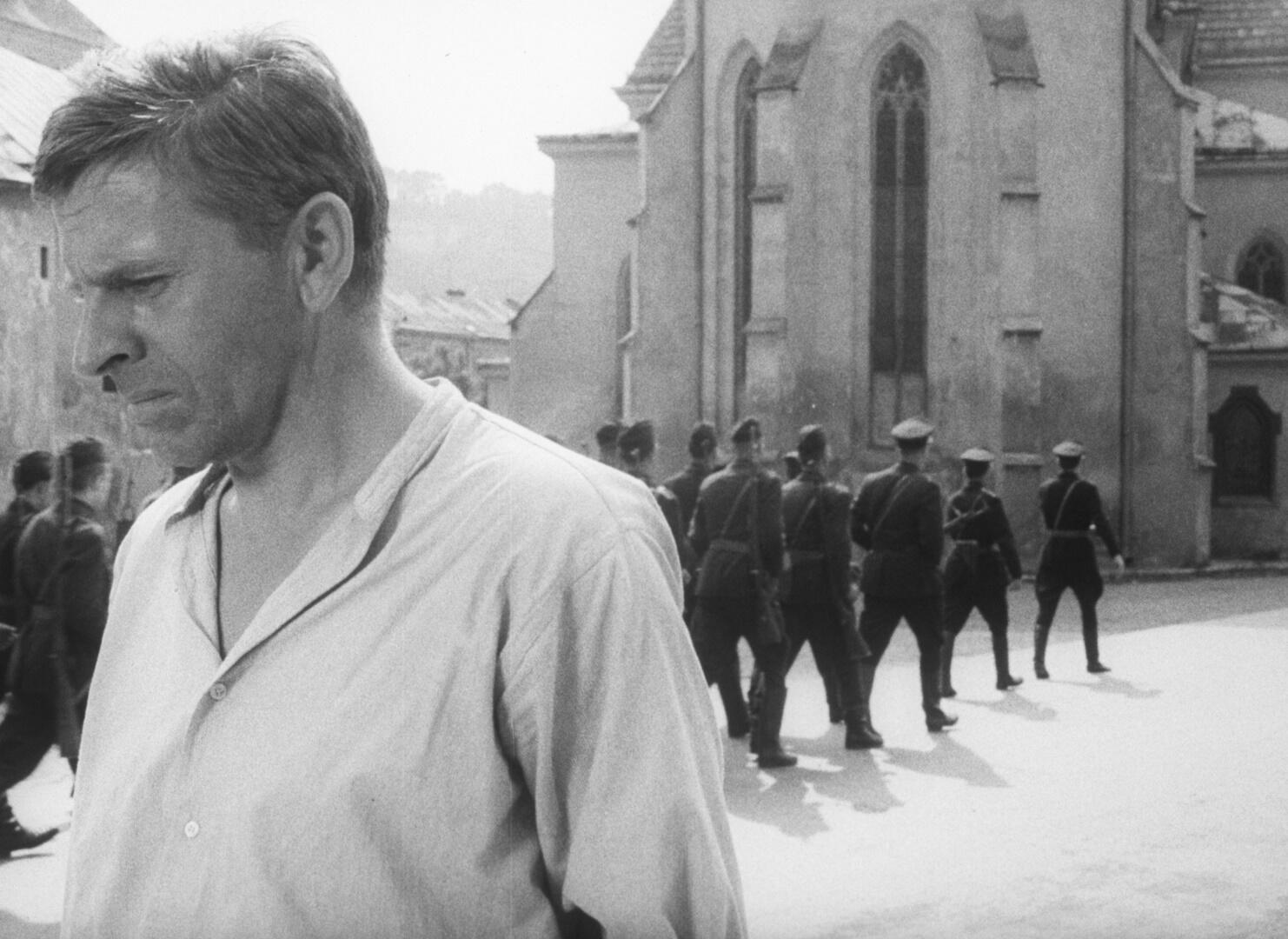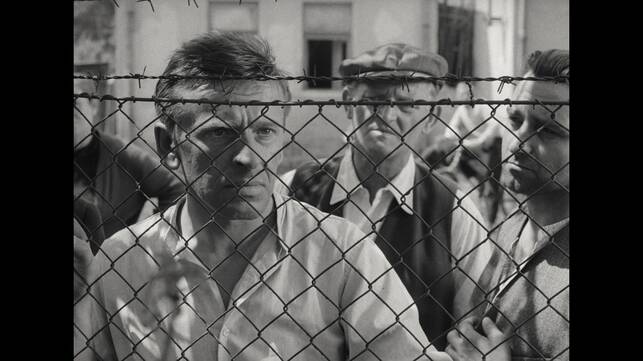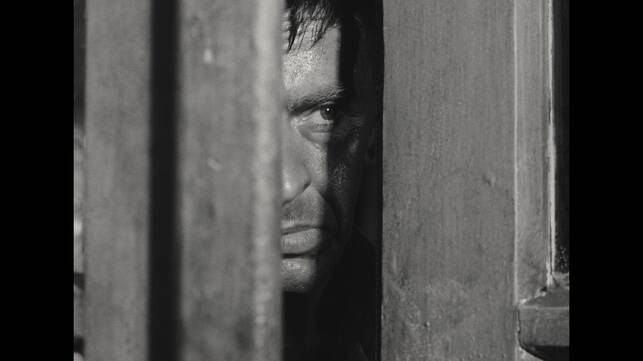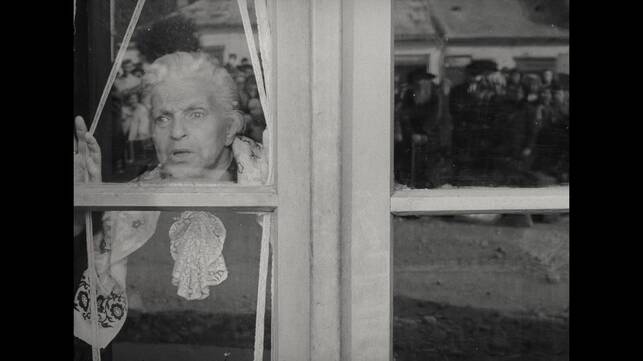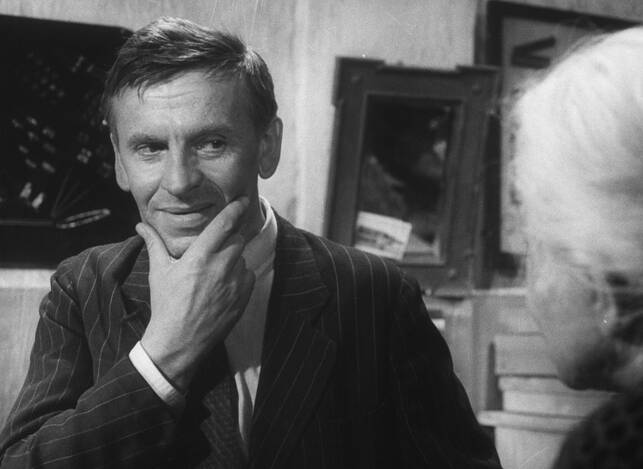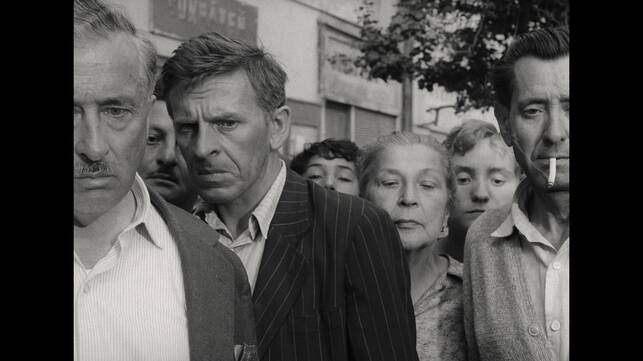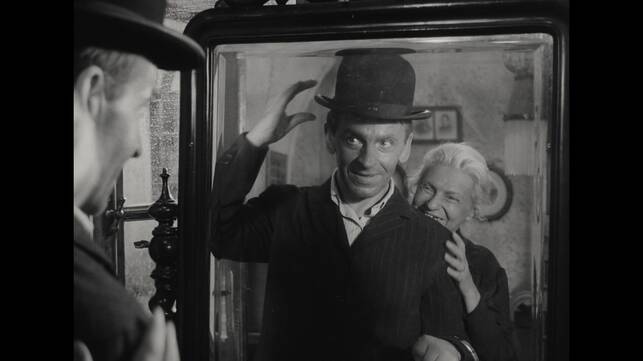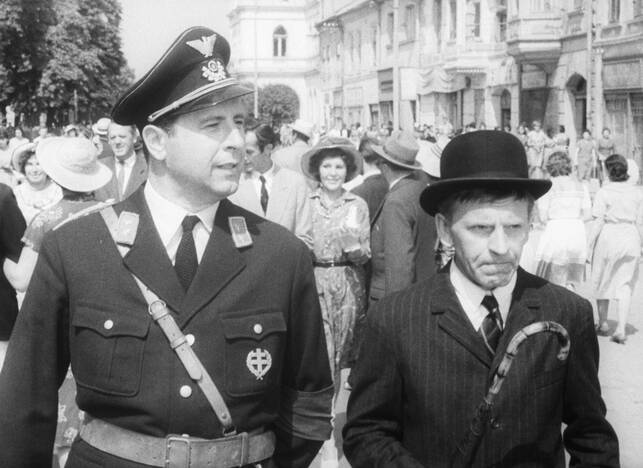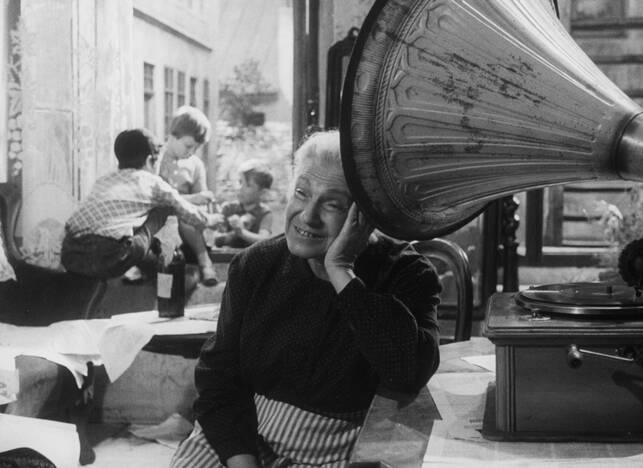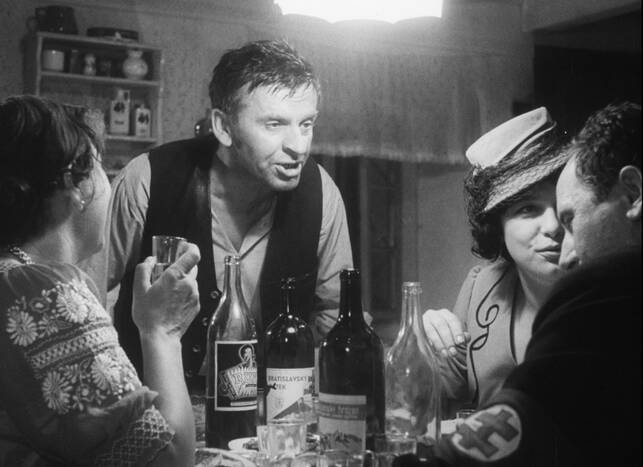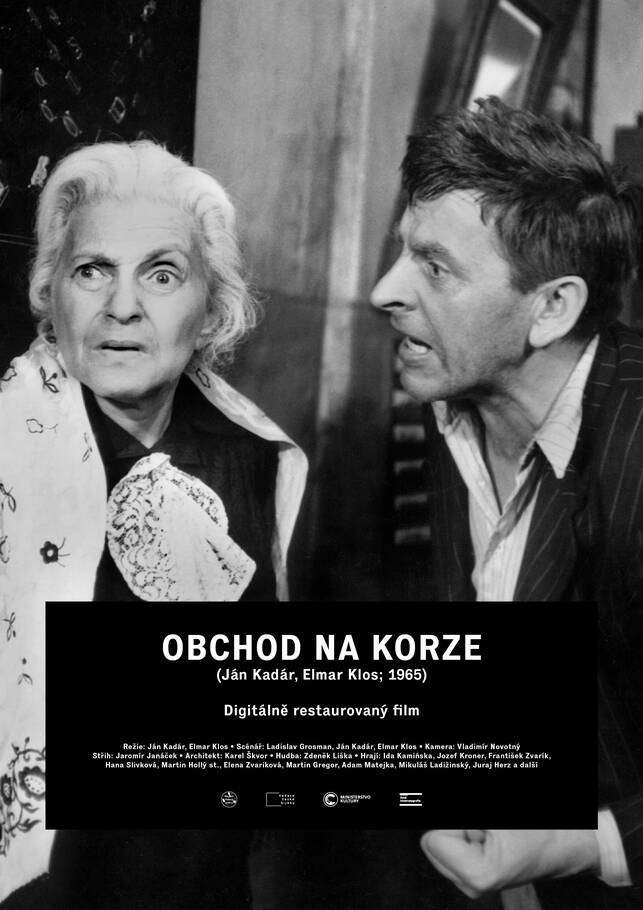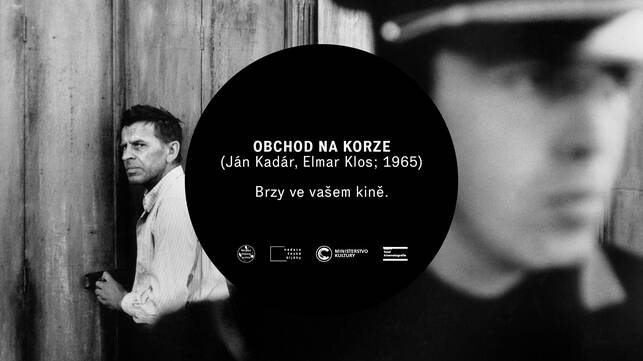Summary
One of the most celebrated Czechoslovak films of all, this 1965 drama comes by way of co-directors Ján Kadár and Elmar Klos. Obchod na korze (The Shop on Main Street) won the Best Foreign Film Oscar in 1967. Adapted from a novel by Ladislav Grosman (who also had a hand in the screenplay), the film represents the peak of Czechoslovak New Wave output. This is despite the fact that its directors technically did not belong to the younger generation of directors associated with the movement, such as Věra Chytilová, Jan Němec and Jiří Menzel. Kadár, a 47-year-old Budapest-born Slovak, and the 55-year-old Czech Klos first met in 1952 during the production of the ideologically-tinted drama Únos (Kidnapped). Their joint filmography also includes the musical film Hudba z Marsu (Music from Mars, 1955), sober drama Tam na konečné (House at the Terminus, 1957) and modern fairytale Tři přání (Three Wishes, 1958). By the time of their 1963 war drama Smrt si říká Engelchen (Death Is Called Engelchen) and 1964 court drama Obžalovaný (The Defendant) they were already viewed as active members of the New Wave. Set in 1942, The Shop on Main Street is a wartime tale that takes place in a remote town in eastern Slovakia. The implementation of the Nazi’s Nuremberg Laws hits the town hard, with local Jews forced to depart for concentration camps, and their possessions confiscated. Due to the pressure of a greedy wife, and thanks to special protection from the brother-in-law, good-hearted Slovak cabinet-maker Tono Brtko is allowed to take over a sewing supplies store hitherto owned by ageing Jewish widow Rozália Lautmannová. But the man is unable to sum up the courage to inform the old woman of the fact that her world has irrevocably changed. Instead, the carpenter pretends he is merely Lautmannová’s new helper, trying to protect her from a tragic fate. This triumphant drama benefits from superb performances by Jozef Kroner and Ida Kamińská, who received a Special Mention at Cannes Film Festival in 1965, where the film was selected to be in competition that year. The then 66-year-old Polish actress was also nominated for a Golden Globe. Kamińská teamed up again with director Jan Kadár in 1970 for Anděl Levine (The Angel Levine) by which time both had gone into exile in the US.
Read more

